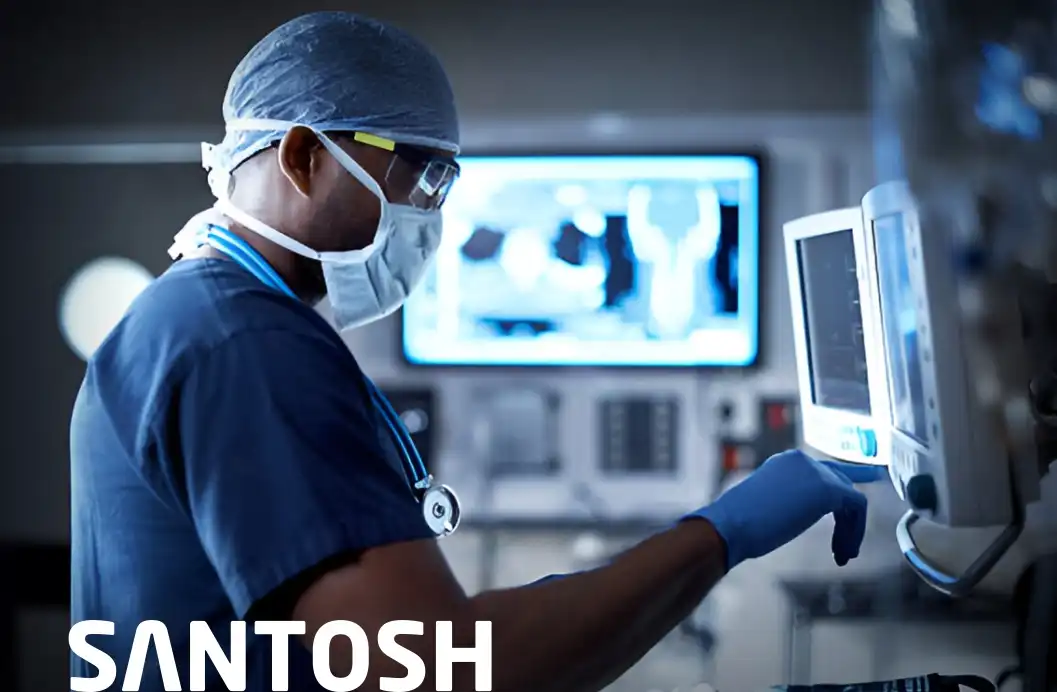Overview
M.Sc. in Medical Imaging Technology is specifically aimed at those pursuing a professional career in imaging science technology. It is designed to provide specialized training in the scientific principles of modern imaging science and in the application of these principles in the field of radiodiagnosis. It is designed as a higher degree course suitable for graduates with experience in the technology of
imaging science. The objective of the programme is to train students to become qualified, patient focused, compassionate and critical thinkers as Radiographers / Technologists for the community who are engaged in lifelong learning. Students will acquire a working knowledge of the clinical environment to influence their design philosophy. The M.Sc. in Medical Imaging is aimed at training graduates for careers in exciting multidisciplinary areas and provides a judicious mix of theoretical and applied topics, allowing students to develop practical skills and preparing them to work with advanced equipment and technologies that are highly valued by employers. Post graduates will be well-equipped and prepared to work in a variety of settings, including hospitals, clinics, research labs and private industry and also be able to pursue careers in medical imaging research, development andclinical practice.
Curriculum
Eligibility Criteria:
- The Candidate who passes B.Sc. Allied Health Sciences/ Medical Radio Diagnosis Technology/ Radiology and Imaging Sciences/ Medical Imaging Technology / Radiography / Bachelor of Medical Radio Diagnosis & Imaging Technology (BMRDIT)
- Equivalent qualifications from a Recognized Institution/ University
Course Outline:
First Semester:
- Radiological Anatomy And Physiology
- Modern Imaging Techniques Including Fusion & Hybrid Imaging Technologies
- Instrumentation & Principles Of Radiographic Exposure Of Conventional Radiology Equipments
- Hospital Infection Control
Second Semester:
- Advanced Physics Of Radiology & Imaging
- Modern Radiological & Imaging Equipments
- Radiographic Procedures & Care Of Patient In Diagnostic Radiology
- Research Methodology & Biostatistics
Third Semester:
- Advanced Techniques & Instrumentation Of Ultrasonography
- Advanced Techniques & Instrumentation Of Computed Tomography
- Advanced Techniques & Instrumentation Of Mri
- Basic Of Computer And IT Skills
Fourth Semester:
- Interventional Radiology Techniques
- Nuclear Medicine Imaging Techniques
- Quality Control In Radiology And Radiation Safety
- BLS & ACLS
- Project Work / Dissertation
Team
Career Prospective
- Radiographer in Hospitals, clinics, diagnostic imaging centers, outpatient facilities, and private practices: They are responsible for performing a variety of diagnostic imaging procedures, including X-rays, computed tomography (CT) scans, magnetic resonance imaging (MRI), and ultrasound examinations.
- Radiology Supervisor or Manager: Radiology supervisors or managers oversee the daily operations of radiology departments. They are responsible for managing staff, scheduling procedures, ensuring equipment maintenance, and maintaining quality control measures.
- Radiologic Technologist: They work closely with radiologists to perform and assist in the interpretation of diagnostic imaging procedures. They are trained to operate various imaging modalities and ensure that patients are positioned correctly for imaging.
- Radiologist Assistant: They work alongside radiologists to enhance patient care and the efficiency of radiology departments and also assist with imaging procedures, patient assessment, and preliminary image interpretation.
- Teaching and Research: Graduates with a passion for education and research can pursue careers in academia and research institutions. They can teach and mentor future radiographers, contribute to research studies, and advance the field of medical imaging through innovation and discovery.
- Consultant: Medical imaging consultants provide expert advice on imaging protocols, equipment selection, and quality assurance. They play a critical role in ensuring that healthcare facilities maintain the highest standards of imaging excellence.
- Hospital Administrator: Hospital administrators with a background in medical imaging can manage radiology departments, ensuring the efficient delivery of imaging services. They oversee budgets, staffing, equipment procurement, and strategic planning to meet patient needs.
- Advanced Practice Roles: With additional certifications and training, graduates can specialize in advanced imaging modalities such as computed tomography (CT), magnetic resonance imaging (MRI), or nuclear medicine.
- Mobile Imaging Services: Some graduates choose to work with mobile imaging services that provide diagnostic imaging directly to patients in remote or underserved areas. This role allows professionals to bring vital imaging services to communities in need.
